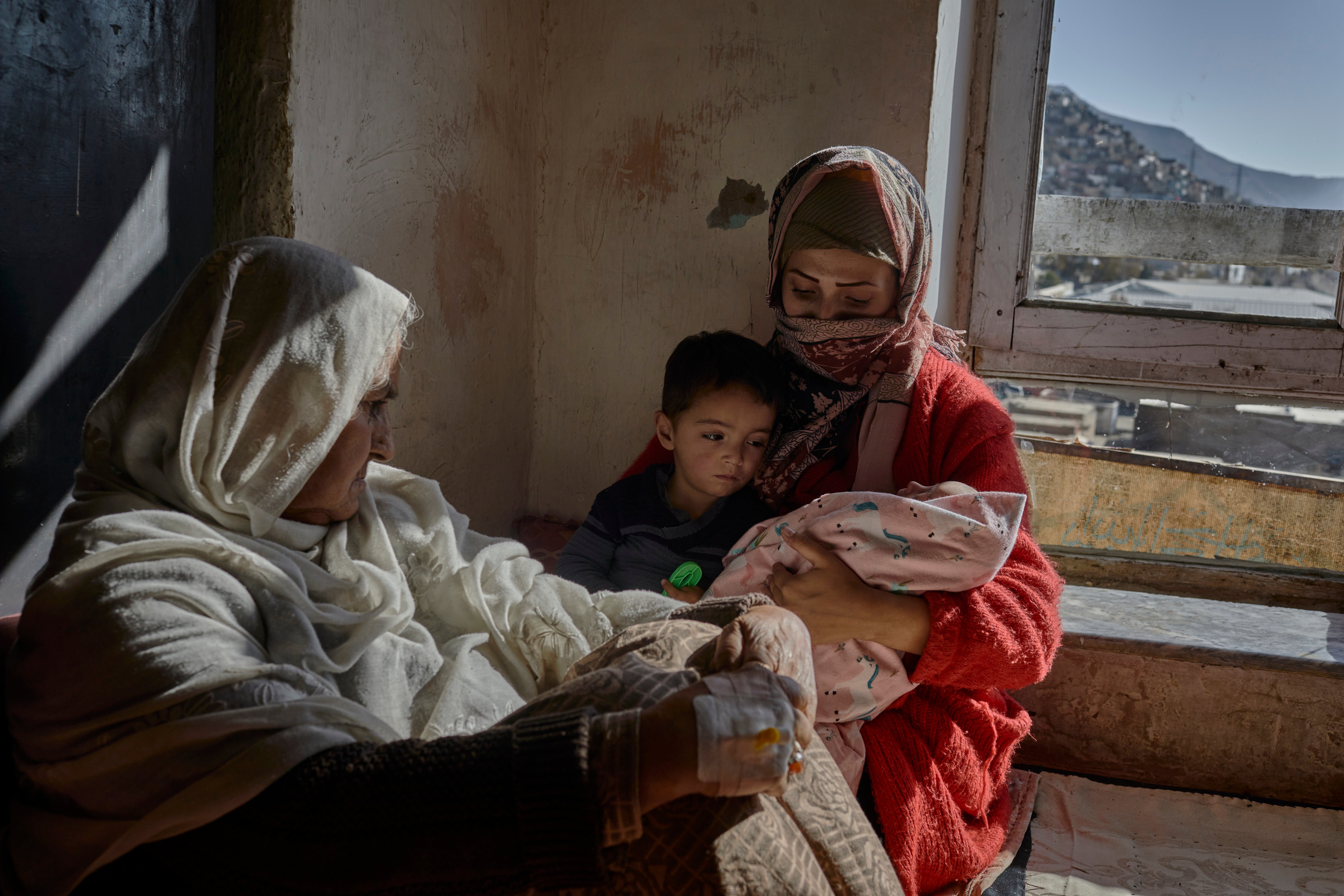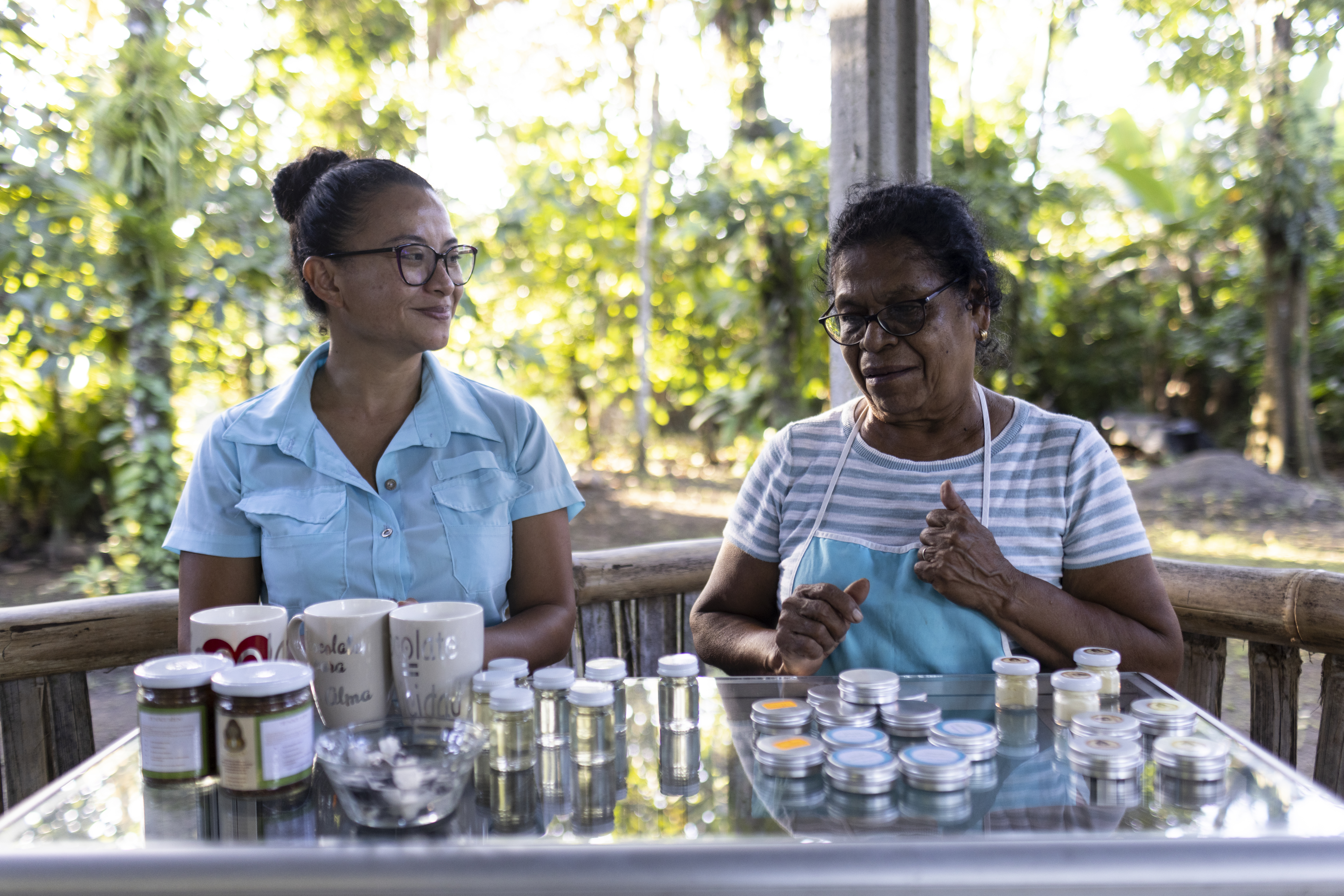Helping refugee women face up to HIV/AIDS
Helping refugee women face up to HIV/AIDS

KAKUMA, Kenya, Dec 1 (UNHCR) - There's not much open talk of sex among the Dinka people of Sudan. "Even when I get married, my mother won't tell me what to expect on my wedding night," says one young woman.
But the grim realities of the modern world are piercing the silence. Classroom education, entertaining films and new health centres in this refugee camp in north-western Kenya are spreading the word that HIV/AIDS is a threat even to closed societies that imagine themselves immune.
"For my community, it's very hard to talk about sex, especially for girls," says Apajok, a confident and articulate Dinka refugee woman of 23. "But most girls have learned about HIV and AIDS if they are in school. Now when we talk about sex, what normally comes to the mind is HIV and AIDS. We give advice to each other on how to protect ourselves."
The best source of advice, Apajok and her friends agree, are the two Voluntary Counselling and Testing (VCT) centres in the camp, opened in April 2002. Here Kakuma's 86,000 refugees - made up of some 20 ethnic groups from Sudan, Somalia, Ethiopia and other countries - can learn more about HIV, the virus that causes AIDS, and find out their status.
"We are so glad to have the VCT centre here," Apajok, who is single, said in an interview at one of the centres. "The educated refugees would like to know their status, especially the youth. If you are not infected, you can learn how to protect yourself. If you have the disease, you will also know how to live with it and how to cope with the situation. You can learn how to prolong your life."
The VCT centres, funded by the Centers for Disease Control and Prevention in the United States, and the International Rescue Committee, obviously satisfied a pent-up demand.
"It didn't take three days for the first person to come for testing," says David Mungwete, an outgoing 27-year-old Congolese refugee with a ready smile, who was the first counsellor at one of the Kakuma clinics. "In the beginning, we had 20 or 30 clients a day." The rate has now tapered off to five or eight a day, but there is still a steady stream of men picking up free condoms daily.
Lessons on reproductive health, woven into the normal school curriculum, had already laid the groundwork for HIV/AIDS prevention. Today HIV/AIDS awareness is also an integral part of school lessons for refugee children in the camp, beginning at about age nine or 10.
FilmAid International, a non-governmental organisation that screens movies to brighten the lives of refugees, has also been an important vehicle for spreading the word, Kakuma refugees say. In addition to non-violent, family-oriented entertaining movies, FilmAid also shows educational films on topics important to refugees, including HIV/AIDS awareness.
At the VCT centre, specially-trained counsellors (refugees themselves) guide clients through a discussion of what prompted them to seek testing, and prepare them for the possible results.
The test takes only 15 minutes, followed by counselling on how to live with the results. "We explain that being negative today, you can't put yourself at risk tomorrow. You have to protect yourself. We emphasise reducing the risk," Mungwete says.
Four percent of Kakuma's refugees are reckoned to be living with HIV/AIDS, and reactions to the news can be extreme, reports Mungwete. "Some people say, 'I am going to kill myself, I am of no use.' Others say, 'I am going back to Sudan to die in my own country.'"
But many more are "living positively." Several thousand Kakuma refugees have joined Post-Test Clubs, which group both HIV-negative and HIV-positive refugees in an advocacy group.
HIV-positive refugees also get special food rations to keep up their strength. UNHCR follows the host government's policy on providing anti-retroviral drugs that can extend the lives of AIDS sufferers. As the government of Kenya expands the availability of such drugs, UNHCR is making arrangements to provide them to the roughly 430 refugees in Kakuma who will need them in 2005.
Misunderstandings and stigma continue to plague HIV positive refugees; among all of Kakuma's 86,000 inhabitants, there is only one person - a Ugandan man - who has openly declared that he is HIV positive. He helps to take care of ill AIDS patients in their huts.
Although the VCT centres offer education to relatives of HIV-positive refugees, Mungwete says families frequently ask him: "Why can't you take them somewhere isolated to die?"
Ignorance, hypocrisy and cultural obstacles are also impeding the spread of HIV/AIDS protection. Women in particular are reluctant to come for testing, accounting for less than 15 percent of tests performed in an average month. "If you go for an HIV test, you are a prostitute" is a common attitude holding women back.
Even educated women are powerless to compel their husbands to use condoms. "We have actually had some women asking for female condoms so that they will have some control," reports Mungwete. (UNHCR is working with UN Population Fund to make female condoms more readily available for refugees in East Africa.)
Although Mungwete firmly believes that "we are making a change," the VCT centre has yet to make inroads into the Somali refugee community - the second largest population at Kakuma - because of firmly entrenched cultural obstacles.
Abdullahi Mohamed, a 29-year-old Somali man, took a job as a receptionist at the centre precisely to encourage his fellow refugees to come for testing and change their behaviour, which he regards as often risky.
Despite a widespread belief among Somalis that they are immune to the disease, Abdullahi sees evidence of growing concerns. Somali refugees refuse to enter the VCT centre, but they pay furtive visits to his home. He says he gives away condoms every evening to Somali men.
Even if change comes slowly, Abdullahi says change is coming, not least for refugee women and girls. He's the proud father of a one-year-old girl, and admits, "to have a daughter in a world full of AIDS is very confusing."
But he's determined she'll grow up well informed about HIV and AIDS, and he's already looking ahead to the day she gets married. "I will never let her marry any man unless he goes for testing first," he says firmly.
"Women, Girls, HIV and AIDS" is the theme of this year's World AIDS Day, which falls on Wednesday, December 1. In addition to Voluntary Counselling and Testing Centres, UNHCR has undertaken numerous efforts to raise awareness of HIV/AIDS and prevent spread of the disease. The agency is currently piloting among refugees in Tanzania provision of post-exposure prophylaxis (PEP) - a short course of medication to prevent HIV transmission after exposure due to rape. The pilot is slated for expansion to East Africa and West Africa in 2005. Programmes to prevent transmission of the virus from mother to child are also being expanded throughout Africa.
The UN refugee agency is marking World AIDS Day at its Geneva headquarters and in various field operations, including Liberia where a workshop is being held to prepare 30 trainers who will later further disseminate information on HIV/AIDS prevention and response among other humanitarian workers and communities in Liberia.
By Kitty McKinsey in Kakuma, Kenya
and Jennifer Clark in Geneva








